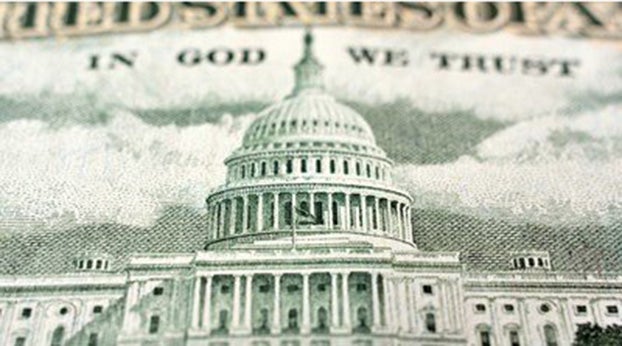Public policy group urges Kentucky to rethink tax cuts
Published 5:10 pm Wednesday, October 12, 2022
THE CENTER SQUARE
The head of a nonpartisan public policy group urged Kentucky lawmakers to reconsider income tax cuts set to start next year, citing fears that a potential recession could wreak havoc with the state’s economy.
Jason Bailey, the executive director of the Kentucky Center for Economic Policy, said in a report Kentucky is experiencing “healthy but temporary” budget surpluses, and those have helped the state’s rainy day fund reach an all-time high of $2.5 billion. That’s roughly 18% of the general fund.
He added the primary drivers of the state’s recent economic boom are not due to anything the state has done, and they’re very likely to start ebbing soon.
“Much of the federal pandemic aid has now expired,” Bailey said. “Inflation is starting to abate, with gas prices down, supply chain bottlenecks beginning to clear, wage growth slowing, and measures of inflation expectations showing reduced concern. Federal Reserve actions to raise interest rates in response to inflation are creating considerable risk of tipping the economy into recession in the next few years, which will harm tax revenue growth in addition to creating economic hardship.”
That possible recession would coincide with a .5-percentage-point cut in the state income tax rate due to take effect on Jan. 1.
Earlier this year, the Republican-led legislature passed a tax reform bill that allows the state to lower taxes if certain criteria are met. Next year’s tax rate is 4.5%, and lawmakers could approve a cut to 4% in 2024 during next year’s session.
Bailey described a perfect economic storm facing Kentucky. If the cuts continue and the country enters into a recession, the state will have to make some dire choices – raid the rainy day fund, raise other taxes or cut the budget. And budget cuts could be particularly painful because Kentucky may need to spend hundreds of millions on flood resiliency projects, bolstering public sector salaries and covering child care needs.
That’s why Bailey said the center is urging lawmakers to forego the cuts.
“Continuing to allow the state to reduce its strongest revenue sources will heighten short-term risks, worsen existing community problems, and force additional cuts to vital education, health and other services down the road,” he said.
It’s not likely the General Assembly will consider the Center’s recommendations.
“That organization has no credibility with me or most Republicans,” Senate Majority Floor Leader Damon Thayer, R-Georgetown, told The Center Square. The Center’s recommendation “has no basis in fact and should be ignored.”
Republicans say the tax cut will put up to $650 million back in taxpayers’ wallets and that shifting to consumption-based taxes will lead to greater long-term prosperity. They cite Tennessee as an example, as Kentucky’s neighbor has seen significantly more growth over the decades due to having no income tax.
Bailey said increasing the sales tax will hit lower-income Kentuckians harder because it will eat away more of their income.







